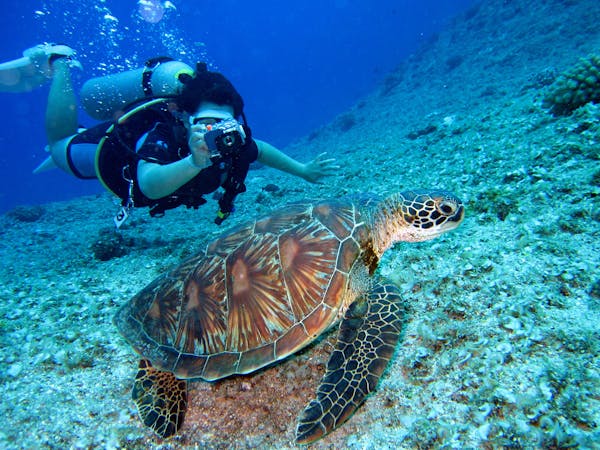
Embracing Eco-Conscious Diving: A Comprehensive Guide to Sustainable Practices for Responsible Divers
In recent years, the call for sustainable practices in every aspect of life has become increasingly urgent, and the world of diving is no exception. As enthusiasts of the underwater realm, divers must understand their impact on marine ecosystems and take proactive steps to minimize harm while maximizing enjoyment.
This guide aims to shed light on the concept of eco-conscious diving and provide practical tips for divers to embrace sustainable practices that not only protect the environment but also contribute to the long-term health and vitality of our oceans.
Understanding Eco-Conscious Diving
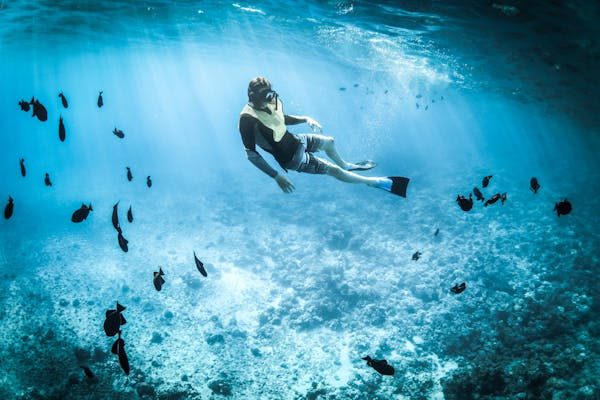 Before delving into specific actions, it’s essential to grasp the essence of eco-conscious diving. At its core, this approach involves making choices that prioritize the health of marine environments, both in the short and long term. It goes beyond merely admiring the beauty of underwater landscapes; it involves actively contributing to their preservation.
Before delving into specific actions, it’s essential to grasp the essence of eco-conscious diving. At its core, this approach involves making choices that prioritize the health of marine environments, both in the short and long term. It goes beyond merely admiring the beauty of underwater landscapes; it involves actively contributing to their preservation.
By recognizing the interconnectedness of all marine life and ecosystems, divers can develop a deeper appreciation for their role in preserving the delicate balance of underwater ecosystems.
Minimizing Single-Use Plastics
One of the most significant threats to marine life is plastic pollution. Divers can make a significant impact by reducing their consumption of single-use plastics such as water bottles, straws, and packaging materials. Opting for reusable alternatives like stainless steel water bottles, bamboo straws, and eco-friendly packaging can significantly reduce the amount of plastic waste that finds its way into our oceans.
By being mindful of their consumption habits both on land and underwater, divers can help mitigate the harmful effects of plastic pollution on marine ecosystems.
Practicing Responsible Buoyancy Control
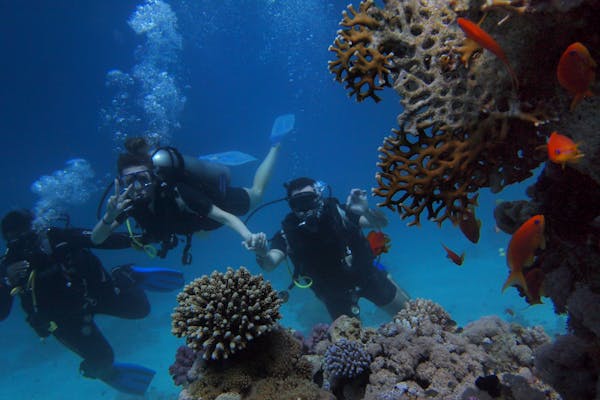 Maintaining proper buoyancy not only enhances the diving experience but also prevents damage to fragile marine ecosystems. Divers should strive to achieve neutral buoyancy to avoid inadvertently damaging coral reefs or disturbing marine life with their fins or equipment.
Maintaining proper buoyancy not only enhances the diving experience but also prevents damage to fragile marine ecosystems. Divers should strive to achieve neutral buoyancy to avoid inadvertently damaging coral reefs or disturbing marine life with their fins or equipment.
By mastering buoyancy control techniques and practicing mindfulness underwater, divers can minimize their impact on delicate coral reefs and other marine habitats while maximizing their enjoyment of the underwater environment.
Respecting Marine Life
Responsible divers understand the importance of observing marine life from a respectful distance. Avoid touching, chasing, or harassing underwater creatures, as this can cause stress and harm to delicate species.
Remember: we are visitors in their habitat. By practicing responsible diving behavior such as maintaining a safe distance from marine life and refraining from touching or disturbing delicate coral reefs, divers can minimize their impact on underwater ecosystems while fostering a deeper appreciation for the beauty and diversity of marine life.
Choosing Eco-Friendly Dive Operators
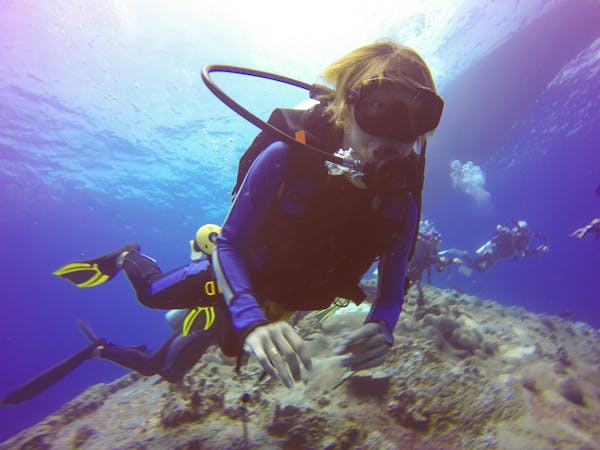 Not all dive operators prioritize sustainability, so it’s essential to do some research before booking a dive trip. Look for operators who adhere to eco-friendly practices such as reef-friendly sunscreen policies, responsible waste management, and support for local conservation efforts.
Not all dive operators prioritize sustainability, so it’s essential to do some research before booking a dive trip. Look for operators who adhere to eco-friendly practices such as reef-friendly sunscreen policies, responsible waste management, and support for local conservation efforts.
By supporting dive operators that prioritize environmental sustainability like those knowledgeable operators who are in charge of the amazing scuba diving in the Dominican Republic, for instance, divers can contribute to the protection and preservation of marine ecosystems while enjoying their underwater adventures responsibly and ethically.
Participating in Conservation Initiatives
Many organizations and dive centers offer opportunities for divers to get involved in marine conservation efforts. Whether it’s participating in reef clean-ups, monitoring marine biodiversity, or supporting research projects, these initiatives allow divers to give back to the underwater world they love.
By volunteering their time and expertise to support marine conservation initiatives, divers can make a meaningful contribution to the protection and preservation of marine ecosystems while building a sense of stewardship and responsibility for the underwater environment.
Investing in Sustainable Dive Gear
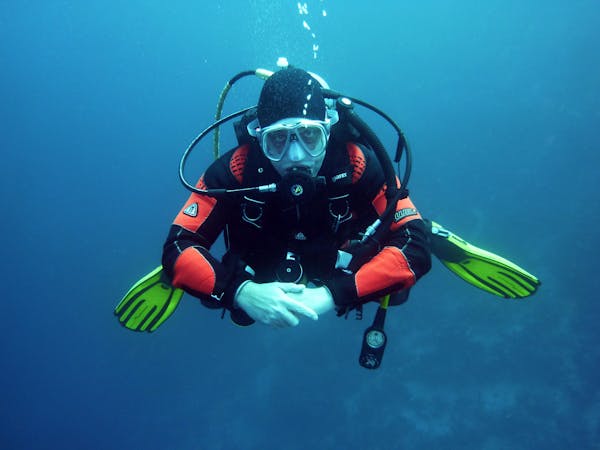 When purchasing dive gear, consider opting for products made from eco-friendly materials or those produced by companies committed to sustainability. Additionally, properly maintaining and repairing equipment can extend its lifespan, reducing the need for frequent replacements and minimizing waste.
When purchasing dive gear, consider opting for products made from eco-friendly materials or those produced by companies committed to sustainability. Additionally, properly maintaining and repairing equipment can extend its lifespan, reducing the need for frequent replacements and minimizing waste.
By choosing dive gear that is designed with sustainability in mind and taking steps to minimize waste and extend the lifespan of equipment, divers can reduce their environmental footprint and minimize their impact on marine ecosystems.
Educating Others
Spread the word about eco-conscious diving within the diving community and beyond. Share your knowledge and experiences with friends, family, and fellow divers to inspire others to adopt sustainable practices and become stewards of the ocean.
By educating others about the importance of environmental conservation and sustainable diving practices, divers can help foster a culture of environmental responsibility and stewardship within the diving community and encourage others to take action to protect and preserve marine ecosystems for future generations.
As stewards of the ocean, divers have a responsibility to protect and preserve marine ecosystems for future generations. By embracing eco-conscious diving practices, we can minimize our impact on the underwater world while continuing to explore and appreciate its beauty.
Together, let’s dive with respect, mindfulness, and a commitment to sustainability, ensuring that future generations can continue to enjoy the wonders of the underwater world for years to come.